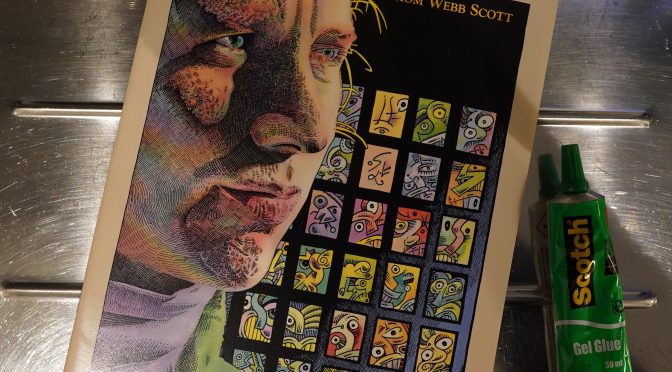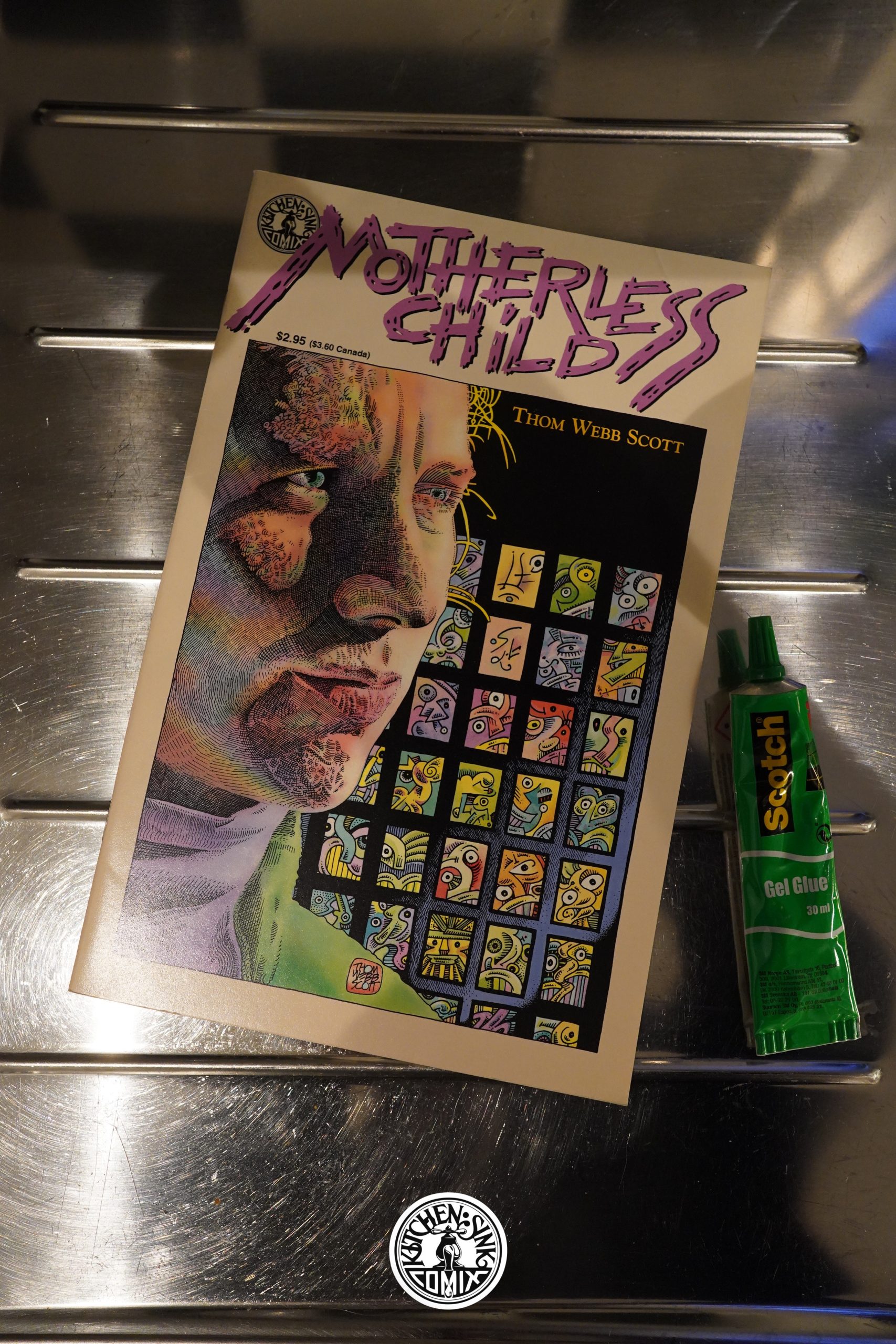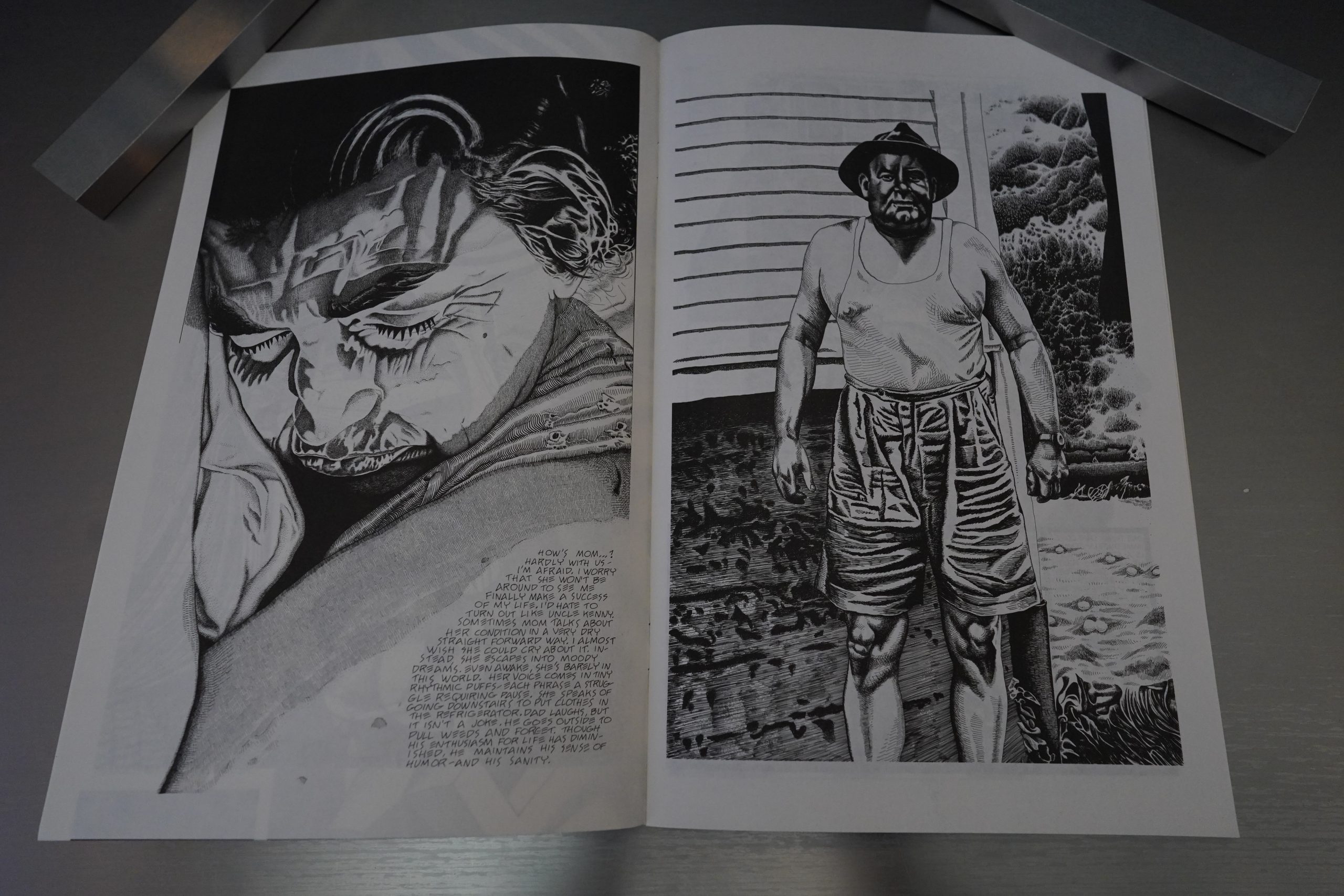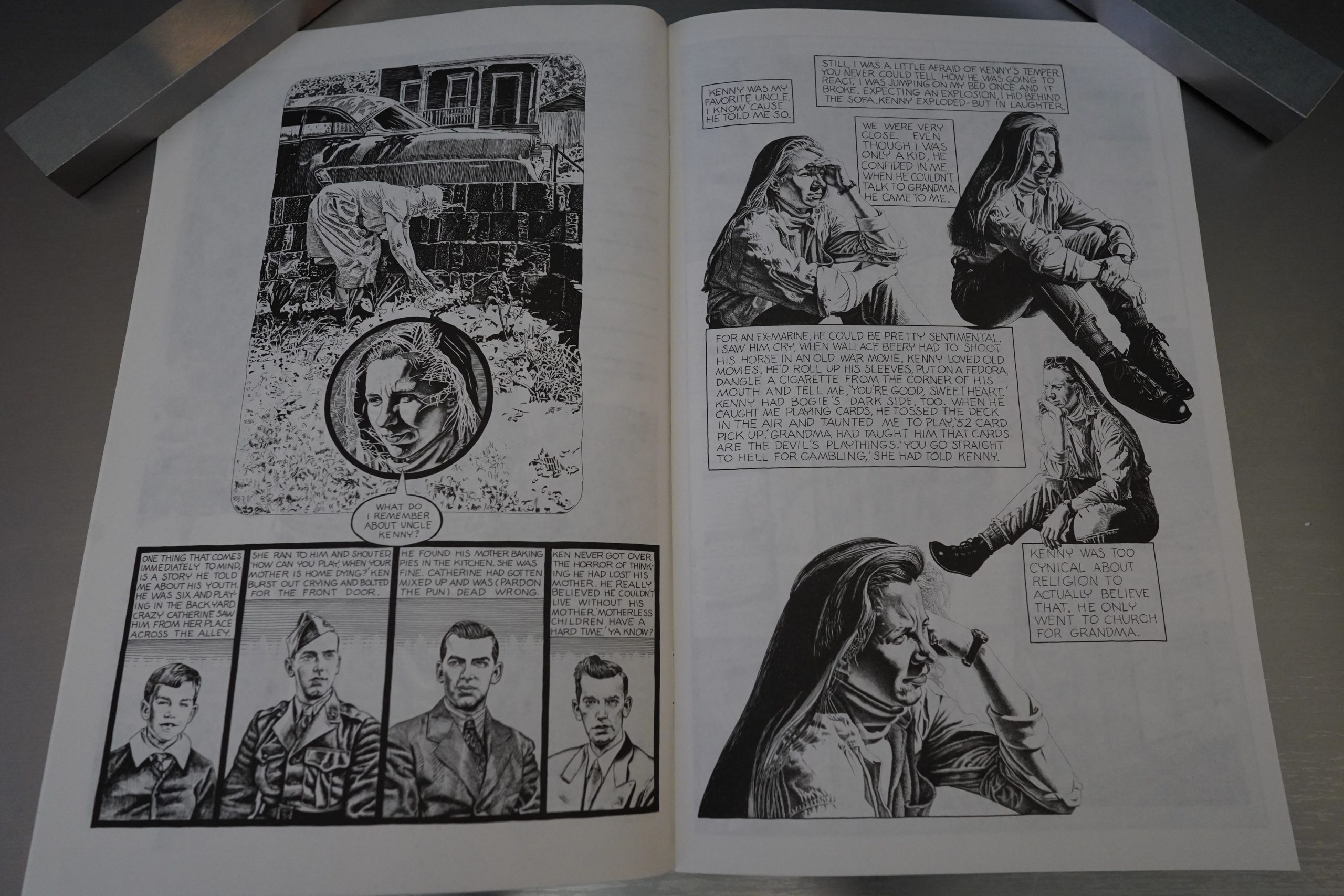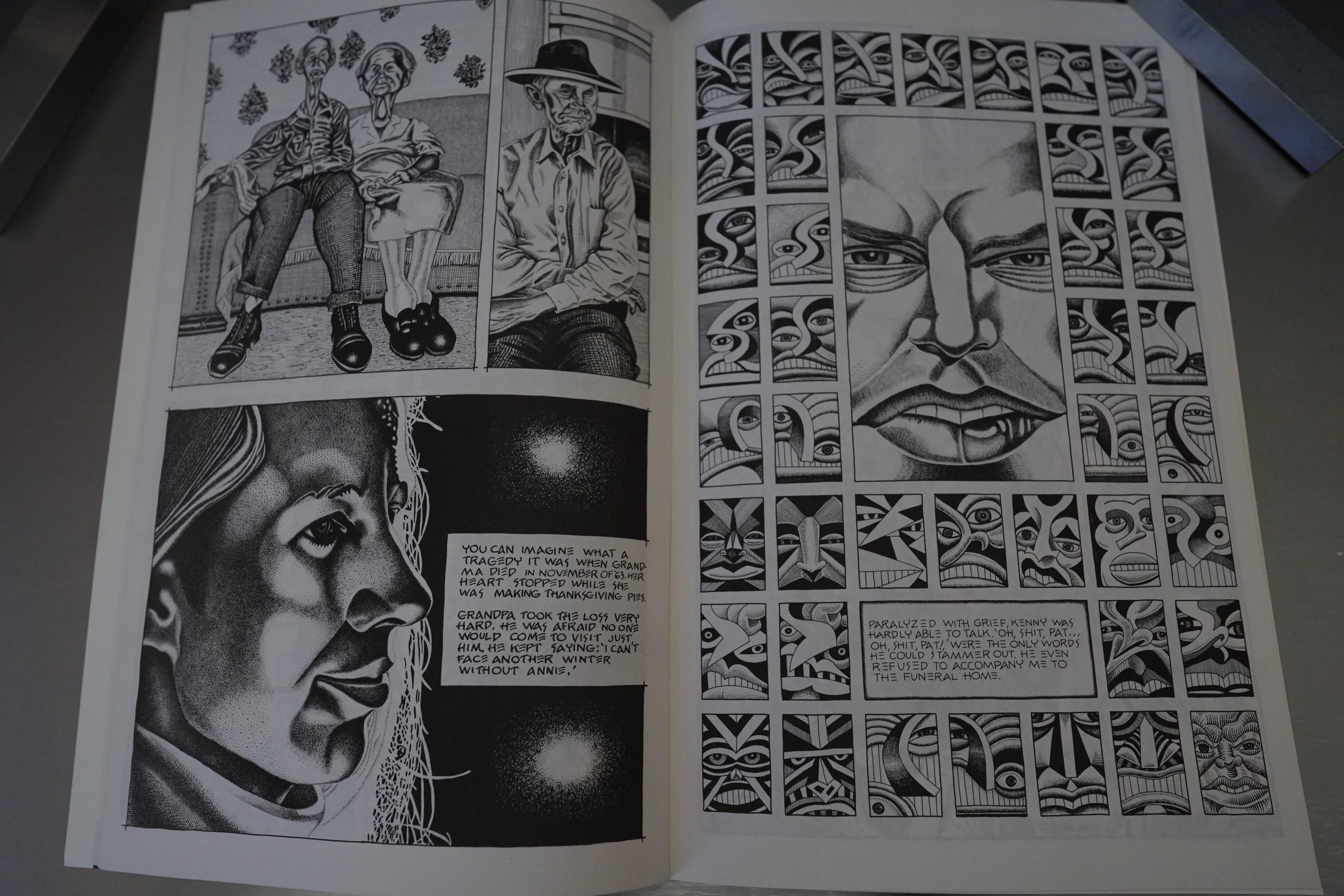Motherless Child (1992) by Thom Webb Scott
As I said in a previous post, Kitchen Sink seemed to publish at lot of books that were just, uhm, inexplicable. I mean, from a sensible publishing point of view. This, for instance, is a 24 page standard comic book, with cardboard covers, from somebody who’s not done comics before. How is this supposed to reach any readers?
But what’s it about?
It’s a befuddling book, and completely original. We start with a text in the first person, and talking about “mom” who’s apparently dying. It’s unclear who this “I” is — is it the author?
Then things become slightly clearer — “What do I remember about uncle Kenny?” So it seems like the author is interviewing this woman, and we’re hearing her talk — perhaps while the author is snapping these pics of her? The artwork is kinda stunning, but obviously drawn straight from snapshots. And they’re very posed snapshots, just like what you’d get if somebody said “sit here while I take some pictures of you that I can later trace”. You know — awkwardly half-smiling while wondering where to put your hands.
As the book progresses, though, we get further abstractions, and… it’s enthralling, listening to this woman talking about her uncle Kenny. (He’s the motherless child — he died (at 37, apparently) soon after his mother (who’s the storyteller’s grandmother)). Oops spoilers!)
It’s a unique book, and it’s astoundingly successful. It’s really wonderful, and the lack of context makes it an even more thrilling object. I had to read it twice — it’s just that compelling.
The Comics Journal #158, page 89:
This book is startling compared to rmst of the comics
you’re likely to see.
A woman talks about Kenny, her “favorite uncle.”
She relates anecdc*es, explains family dynamics,
comments, all to trace a portrait of a man with prob-
lems. Not desperate, melodramatic problems — he’s
just someone who doesn’t get along very well with
the world he lives in.
Her monolog is illustrated by shots of herself.
interspersed with pictures of the main actors. That’s
not to say that these drawings actually show the scenes
described in the narration. Instead, they show family
snapshots of the people involved, Otfring us an
tunity to size them up, to guess at their personalities
fmm their their expressions. The art is quite
appealing. shifting smoothly back-and-forth
near-photorealism and expressionism.
This comic never forces itself on us. It is never
uorld.” according to the information on the back cover.
melodramatic, never condescending. I can quibble
with a few details — the Story could be a bit more
focused, the last two pages are rather sententious —
but this book’s uorth a look.
It has apparently never been reprinted, and it doesn’t look like Thom Webb Scott (also named Thom Scott III, apparently) has done any further comics. Or… much of anything? I’m not able to google him at all. Well, that’s a shame.
This is the one hundred and forty-first post in the Entire Kitchen Sink blog series.
